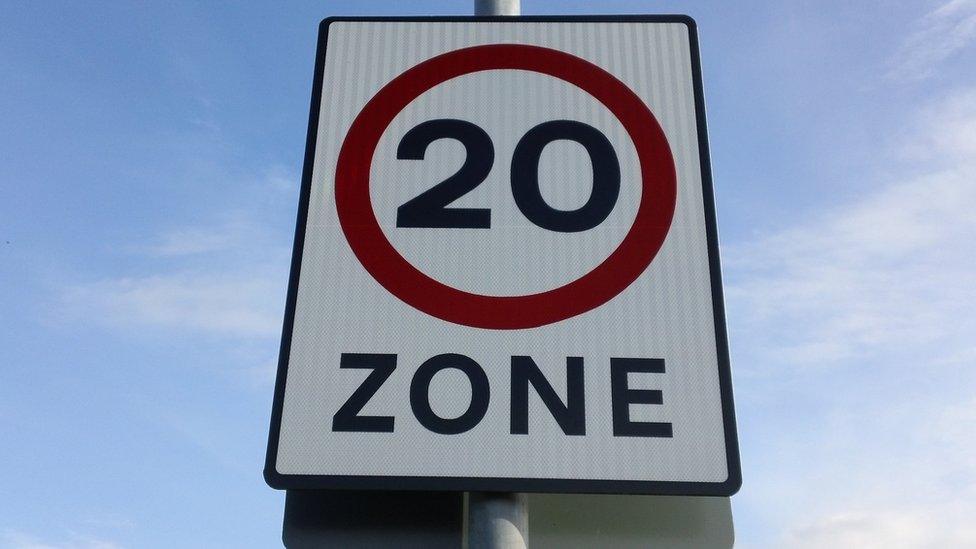Wales' 20mph limit will slow police response - leaked email
- Published
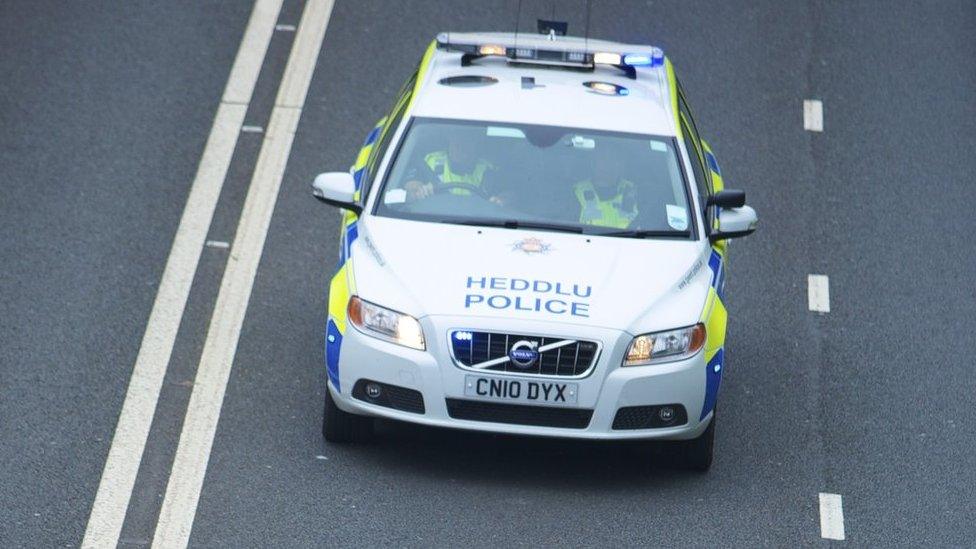
Police say that officers with the highest level of training are not restricted on speed when responding to emergencies
Wales' new 20mph limit will affect the speed police travel to emergencies, a leaked email has said.
A senior South Wales Police officer said it would have an "influence" on how fast police can travel and may affect how they respond.
However, Assistant Chief Constable Mark Travis has since said he believes response times will not be affected.
Welsh ministers said the law would not stop police, fire and ambulance services exceeding speed limits.
But the Welsh Conservatives said they feared lives might be lost because of slower emergency response times.
In the email, obtained by the Welsh Conservatives, ACC Travis said: "We recognise that this will influence speeds at which our responders are able to travel to emergency calls and may have an impact on how we respond or deploy our staff to incidents."
The message was sent to all fire, police and ambulance services in Wales, South Wales Police said.

Mark Travis said his email to colleages was to "make sure they were prepared for what is quite large change"
But Mr Travis subsequently told Radio Wales Breakfast that the rule change would cause "no discernible difference" to response times.
"We already have 20mph limits within Wales which we already observe and respond to. Whilst this is new in terms of the scale this is not new in terms of ways of working.
"Actually, sometimes the road being slower makes it easier for emergency service vehicles to make progress. It's easier to pass a slower vehicle than a faster vehicle."
The new limit comes into effect on 17 September on all roads that are currently 30mph (50km/h) although councils will be able to impose exemptions. It is hoped the move will help cut injuries and deaths.
Wales' ambulance service will also be restricted to a maximum speed of 40mph (65km/h), rather than 50mph (80km/h), on 20mph (30km/h) roads, it has emerged, as policy means drivers are limited to going 20mph over the limit.
However, the ambulance trust said the maximum speed was not always possible.
North Wales Fire and Rescue Service said it expected the shift would cause slight delays to response times.
Welsh Conservative transport spokeswoman Natasha Asghar said: "Labour claim that this policy is to save lives.
"But with the police admitting it will impact response times and no work carried out to measure the affect blue light services - contrary to saving lives - I fear that lives will actually be lost."
She demanded a hold on the rollout of the 20mph scheme.
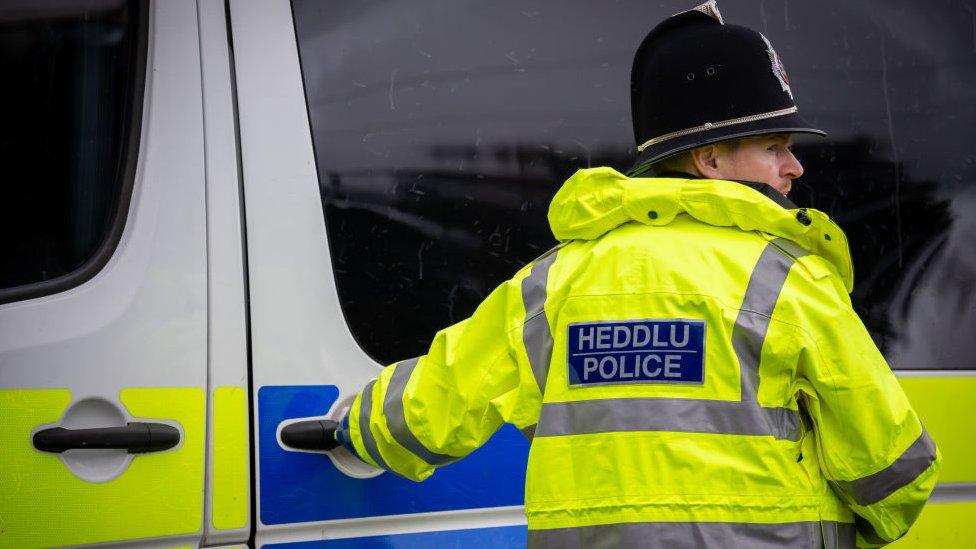
Police who do not have the top level of training cannot go more than 20mph above the speed limit
In response to a Freedom of Information Act request from the Conservatives, the Welsh government said it had no information when it was asked for "studies and data gathered into the negative impact the 20mph limit" would have on response times.
"Police, fire and ambulance services are allowed to exceed speed limits in the course of their emergency response duties, and this is not changing with the default speed limit change to 20mph", the government response said.
In response to the Conservatives, Mr Travis claimed the comments remarked on by the Conservatives "have been taken from a longer and more comprehensive email so appear out of context".
"At no point have we suggested that response times will be affected detrimentally.
"We have recommended that agencies should consider their policy, procedure and training to ensure that changes in legislation do not adversely affect the public."
He added that officers with the highest level of training were not restricted on speed when responding to emergencies, but "drivers who have a reduced level of training will drive to a maximum speed of 20mph above the posted the speed limit".
The Welsh Ambulance Services NHS Trust said: "While ambulance crews are allowed to exceed speed limits in the course of their emergency duties, we are mindful of the safety of crews and other road users and still instruct safe limits.
"On that basis, our policy requires crews to drive at a maximum of 20mph above the posted speed limit, recognising that in congested urban areas, this maximum speed is not always possible given safety and environmental factors."
The service said drivers had to "justify the speed and manner in which they drive the vehicle" and welcomed the 20mph limit as it has "the potential to reduce death, serious injury and harm on our roads".
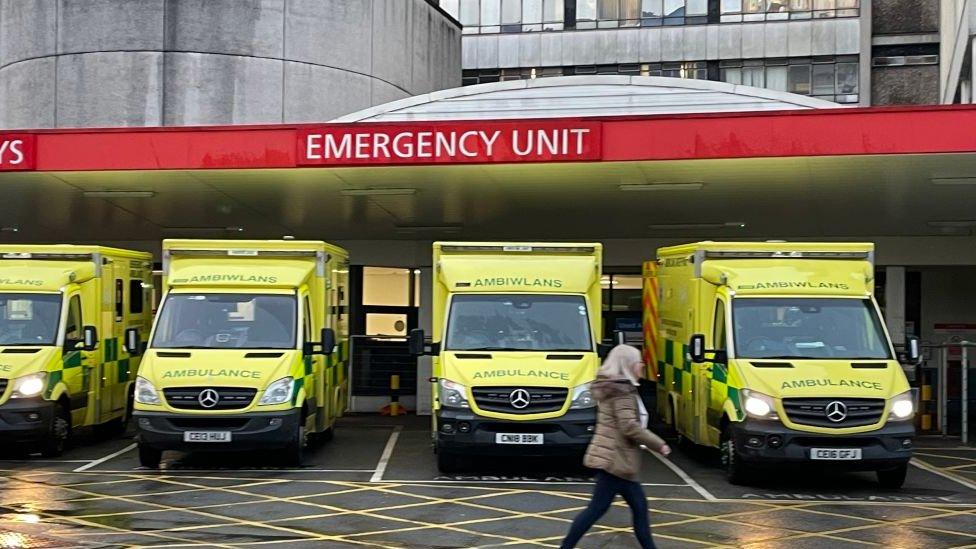
The top speed that ambulances can travel at will be reduced in the new 20mph areas
South Wales Fire and Rescue service has a similar policy in terms of speeds allowed when responding to emergencies.
In a statement it said: "Our crews regularly see the devastating impacts that road traffic collisions can have, including in built up areas where people and vehicles mix closely.
"We are therefore pleased to support our partners to raise awareness of the importance of speed limits to keep everyone safe."
Paul Jenkinson, head of response for North Wales Fire and Rescue Service, said: "Reducing the speed to 20mph is likely to result in a slight delay in our response times to incidents.
"However, given the exemption from the speed limits in law, fire appliances can go above the speed limit."
The Welsh government said: "Changing the default speed limit on restricted roads in Wales to 20mph does not impact on the legislation that allows police, fire and ambulance services to exceed speed limits in the course of emergency response duties."
Related topics
- Published23 April 2024
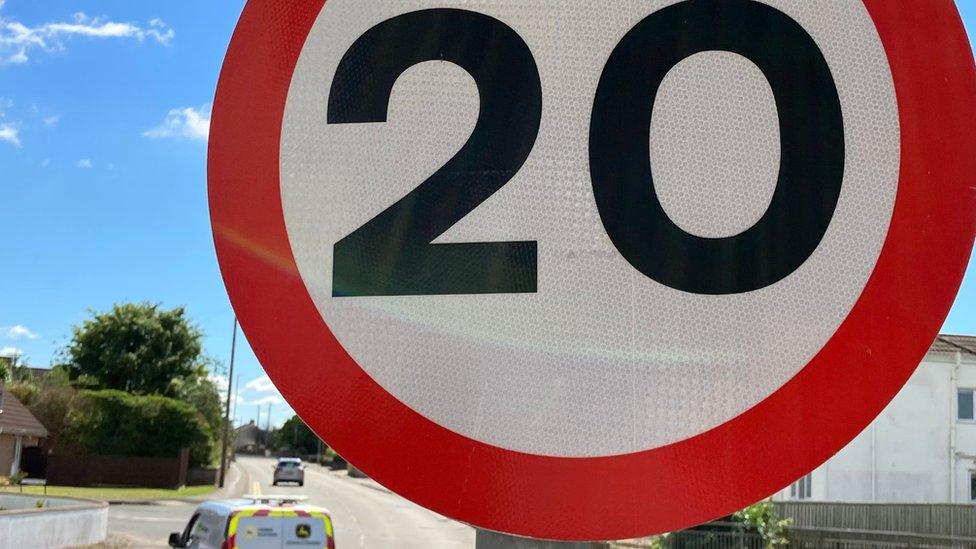
- Published28 June 2023
